Occupational Therapy Doctorate
-
Application Opens: July 19, 2024
- Application Closes: June 20, 2025
- Program Admission Notifications: NOW
Admissions will be offered on a rolling basis until all slots have been filled.
Welcome to Western Oregon University’s Occupational Therapy Program!
Western Oregon University is the first occupational therapy program to be located within Oregon’s public university system. We have achieved Candidacy status of accreditation with the Accreditation Council for Occupational Therapy Education (ACOTE), see below for details. We are located at the WOU Center for Graduate Studies in Salem. Our inaugural cohort will graduate in June 2027.
Occupational Therapists use everyday activities (occupations) to help people and groups to do the things they want to do, need to do, and/or are expected to do in order to live life to the fullest. Occupational Therapy practice balances art and science to provide assessments and interventions that are evidence-based, holistic, and context driven. More information about careers in occupational therapy can be found at the American Occupational Therapy Association website: About Occupational Therapy.
Request a Program Information Session
Meet with an OTD Faculty Member:
- Program Overview
- Admission Requirements / Application Tips
- Program Structure and Format
- Faculty and Research Opportunities
- Student Experience
- Financial Information
- Career Outcomes
- Q&A Session
Program Status
The entry-level occupational therapy doctoral degree program has applied for accreditation and has been granted Candidacy Status by the Accreditation Council for Occupational Therapy Education (ACOTE) of the American Occupational Therapy Association (AOTA), located at 6116 Executive Boulevard, Suite 200, North Bethesda, MD 20852-4929. ACOTE’s telephone number c/o AOTA is (301) 652-AOTA and its web address is www.acoteonline.org. Candidacy Status indicates that the program’s resource allocation and plan for developing its proposed program appear to demonstrate the ability to meet ACOTE Standards. The program must have a pre-accreditation review, complete an on-site evaluation, and be granted Accreditation Status before its graduates will be eligible to sit for the national certification examination for the occupational therapist administered by the National Board for Certification in Occupational Therapy (NBCOT). After successful completion of this exam, the individual will be an Occupational Therapist, Registered (OTR). In addition, all states require licensure in order to practice; however, state licenses are usually based on the results of the NBCOT Certification Examination. Note that a felony conviction may affect a graduate’s ability to sit for the NBCOT certification examination or attain state licensure.
Students are urged to contact the appropriate certificate or state licensing agency for further information.
- Program results from the National Board for Certification in Occupational Therapy (NBCOT)
- State of Oregon: Occupational Therapy Licensing Board
Program Details
Overview
Designed for:
The Occupational Therapy Doctorate (OTD) program at WOU is the first public doctoral-level occupational therapy (OT) program in Oregon and is designed to prepare students to balance the art and science of OT practice as entry-level therapists. Occupational therapists work with individuals, groups, and organizations to promote health and wellness across the age span so that everyone can strive to live life to the fullest. Occupational therapy practitioners use occupations (meaningful activities) to support individuals in doing the things they want to do, need to do, and are expected to do in daily life.
Begin your Occupational Therapy Doctorate (OTD) program:
- Fall 2025
Finishing will take:
- 147 quarter credits
- Students must complete 24 weeks of Level II fieldwork as well as an individual 14-week capstone experience within 24 months following the completion of the didactic portion of the program. The doctoral capstone experience must be started after completion of all coursework and Level II fieldwork as well as completion of preparatory activities defined in 2023 ACOTE OTD Standard D.1.3.
- Doctoral Capstone Experience and Project
Where you will take classes:
- Most classes will take place in-person at WOU:Salem building
- Some classes will utilize a hybrid format
- 3rd year didactic courses will be hybrid
- Final doctoral capstone presentations will be in person the week leading up to graduation
Technology you will need:
- Reliable computer with high-speed internet connection
- Microsoft Office software (student version is sufficient)
- Video conferencing capability (e.g. Zoom)
- The Occupational Therapy Doctorate program includes a limited number of hybrid courses. Students must be proficient in the use of web-conferencing software (e.g. Zoom), Microsoft Office, GoogleApps, and online course management programs (e.g. Canvas).
What you will learn:
Students will learn the skills necessary to become outstanding entry-level occupational therapy practitioners across the diverse settings and contexts where occupational therapists work. Students will become skilled in analyzing and applying scientific evidence through artful interventions to support participation and occupational performance for all.
Learning outcomes:
Students will:
- Demonstrate the knowledge and skills to be excellent, generalist, entry-level occupational therapists
- Understand the importance of promoting health throughout the lifespan using meaningful occupations
- Apply skilled application of occupational therapy theories to evaluate clients and develop appropriate interventions using occupations to improve functional performance and quality of life for those served
- Create a life-long learning plan
- Provide services through a lens of cultural humility that promotes equitable care while accepting diverse perspectives and promoting inclusion for all
- Demonstrate an awareness of emerging areas of practice and the significance of community-based services
- Be prepared to become leaders and agents of change, empowering therapists and clients alike
- Collaborate with clients, professionals, and others through clear, effective, and empathetic communication
Application Requirements
Deadlines and key dates:
- You may apply to start the program fall 2025
- Applications Opens: July 19, 2024
- Application Closes: June 6, 2025
- Priority Review Deadline: October 31, 2024
- Notifications of Acceptance: Beginning December 13, 2024
Admissions will be offered on a rolling basis until all slots are filled.
Detailed application requirements
Application materials required for WOU Graduate admission:
- Application and supporting materials will be submitted via the Occupational Therapy Centralized Application Services (OTCAS) system.
Process: You will be notified via email regarding the acceptance status of your complete application. FAQs
International Applicants
At this time the WOU OTD program is unable to accept international applications. We are working on obtaining SEVIS approval, but at this time are being told it will be at least Fall 2027 before we are ablet o admit international students. We will update our website and application once we are able. If you have any questions about this, please email Kristin Nxumalo: nxumalok@wou.edu.
To start, you need:
- Evidence of completion of a four-year baccalaureate degree (or international equivalent) from a regionally accredited institution as defined by the American Association of Collegiate Registrars, with a cumulative B average (equivalent 3.00 on a U.S. 4.00 grading scale) on the most recent baccalaureate degree. If the applicant’s cumulative GPA is below 3.00, but a calculation using the last 90 quarter credits (60-semester credits) of graded course work is 3.0 or higher, the latter will be used as the basis for admission. If an applicant does not have a cumulative or last 90 quarter credit GPA higher than a 3.0, applicants may petition to use their prerequisite GPA to meet admission criteria. For more information on the prerequisite GPA petition please email Kristin Nxumalo: nxumalok@wou.edu.
- Transcripts and/or academic records submitted through OTCAS from all institutions attended.
- 3 Letters of Recommendation
- OTCAS Personal Statement Prompt: Discuss how your academic background and life experiences will contribute to success in the OT program while enhancing our program and the profession of occupational therapy.
- Western Oregon University short-essay statement: Please consider the following Western Oregon University OTD curricular threads, and in a brief statement, describe which one resonates with you most and why:
- Power of occupation
- Art and science of occupational therapy
- Community health and social change
- Critical and innovative thinking for practice and scholarship
- Steward leadership and occupational justice
- Prerequisite Courses:
- Successful Completion of the following prerequisites with a cumulative GPA of 3.00 within the past 10 years (P/NP grading during the global pandemic [Spring 2020 – Summer 2021] may be considered if a grade of “P” was earned) Prerequisite courses may be in progress at the time of the application, so long as they are completed by the program start in September:
- Human Anatomy & Physiology with labs (9 semester or 12 quarter hours) [Courses at WOU that satisfy the requirements: BI234, BI235, BI236]]
- Human Development (3 semester, 4 quarter units)[Courses at WOU that satisfy the requirements: PSY311]
- Social Sciences/Humanities (12 semester or 16 quarter hours) Courses can be in any of the following subject areas but at least one course must be in Psychology.
- Psychology
- Gerontology
- Exercise Science
- Public Health
- Criminal Justice
- Religious Studies
- Ethnic Studies
- Gender Studies
- Human Sexuality
- Literature
- Anthropology
- Sociology
- Social Work
- Philosophy
- History
- Language(s)
- Culture
- Art(s)
- Successful Completion of the following prerequisites with a cumulative GPA of 3.00 within the past 10 years (P/NP grading during the global pandemic [Spring 2020 – Summer 2021] may be considered if a grade of “P” was earned) Prerequisite courses may be in progress at the time of the application, so long as they are completed by the program start in September:
Curriculum
OT Mission:
To produce socially conscious and evidence-informed OT practitioners that utilize the power of occupation to promote the health and well-being of people and their communities in our region and the larger world.
OT Vision:
We envision a world where everyone has access to and the ability to participate in meaningful occupations that support health and well-being.
WOU OTD will achieve this vision by:
- Diversifying the profession of OT to increase access to occupational opportunities for historically underserved and minoritized persons in our communities locally, nationally, and globally.
- Cultivating student success by supporting the inclusion of, and respect for all learners, faculty, and staff while embracing the diversity of experience and thought present throughout our world.
- Producing resilient and innovative leaders who integrate the art and science of occupational therapy.
Curriculum Overview [Curriculum Grid]
The Occupational Therapy Doctorate (OTD) program prepares graduates to work with individuals, groups, and populations who are affected by physical, cognitive, psychosocial, mental, developmental, and/or learning challenges, as well as adverse environmental conditions, to maximize their occupational functioning and maintain optimum health through a planned mix of acquired skills, performance motivation, environmental adaptations, assistive technologies, and physical agents. Occupational Therapy education includes instruction in the basic medical sciences, psychology, sociology, client assessment and evaluation, standardized and non-standardized tests and measurements, assistive and rehabilitative technologies, ergonomics, environmental health, special education, vocational counseling, health education and promotion, health advocacy, and professional standards and ethics.
The OTD program is a three-year professional doctorate degree that will prepare students for careers as occupational therapists and faculty in Occupational Therapy programs. The program is built upon a foundation of human occupation, lifespan development, mental health, anatomy and physiology, kinesiology, and neuroscience that supports evaluation and assessment, applied research, intervention and rehabilitation, clinical practice, and advocacy. The program will meet all national accreditation requirements as prescribed by the Accreditation Council for Occupational Therapy Education (ACOTE). The sixty-one learning outcomes required of all ACOTE accredited programs will be delivered over 11 terms, including 24 weeks of Level II Clinical Fieldwork and a 14-week Doctoral Capstone Experience.
Curriculum Threads and Program Outcomes
- The power of occupation
- Work with individuals across the lifespan and in various contexts to harness the transformative nature of engaging in occupations (meaningful activities) that promote health, well-being, and participation in purposeful life roles.
- Weaving the art and science of occupational therapy
- Utilize the unique blend of theoretical knowledge, clinical skills, creativity, and human connection to help people achieve meaningful and purposeful lives.
- Community health and social change.
- Understand what creates healthy communities, how environments and contexts shape health and well-being, and how to act as social change agents alongside the communities we serve.
- Critical and innovative thinking for practice and scholarship
- Think outside the box to engage in thoughtful analysis, problem-solving, and creative solutions within the context of occupational therapy practice. Continuously reflect on practice and the unique needs of individuals, groups, and populations.
- Steward leadership and occupational justice
- Adopt roles that extend beyond traditional clinical practice to become advocates, facilitators, and supporters of positive change within the profession and society at large. Work to advance the field, promote ethical practice, and ensure that the principles of occupational justice are upheld.
Faculty
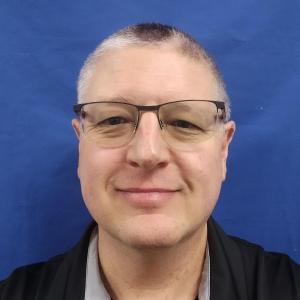 SEAN ROUSH
SEAN ROUSH
Director of Occupational Therapy
503-751-4054 | roushs@wou.edu | VICK BUILDING(VICK) 205B
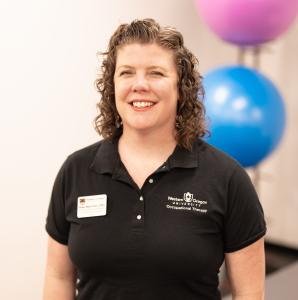 HALLEY READ
HALLEY READ
TT Assistant Professor & Capstone Coordinator, Occupational Therapy
| readh@wou.edu | VICK BUILDING(VICK) 205A
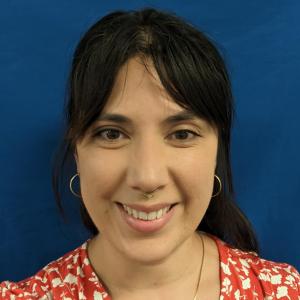 STACEY VIEYRA-BRAENDLE
STACEY VIEYRA-BRAENDLE
Assistant Professor & Fieldwork Coordinator, Occupational Therapy
503-751-4080 | vieyrabraendles@wou.edu | VICK BUILDING(VICK) 205C
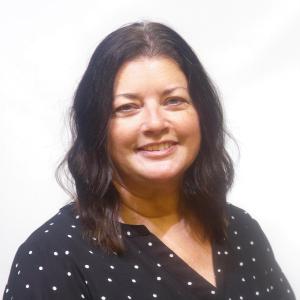 AMY STEWART
AMY STEWART
Administrative Program Assistant
503-751-4121 | stewarta@wou.edu | VICK BUILDING(VICK) 206
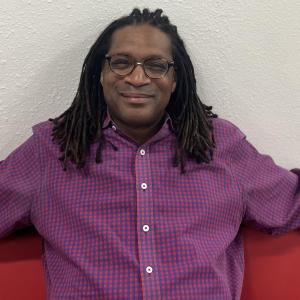 RONNIE TAYLOR
RONNIE TAYLOR
Assistant Professor
| taylorrg@wou.edu |
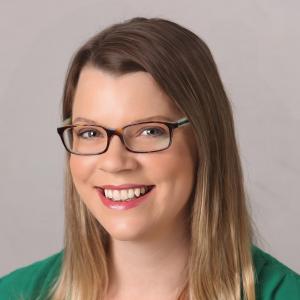 KRISTIN NXUMALO
KRISTIN NXUMALO
Assistant Professor
| nxumalok@wou.edu |
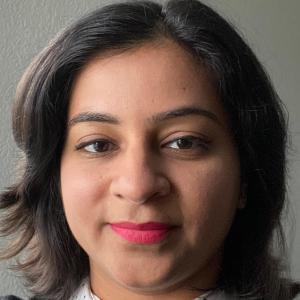 SHRUTI GADKARI
SHRUTI GADKARI
TT Assistant Professor, Occupational Therapy
503-838-8905 | gadkaris@wou.edu |
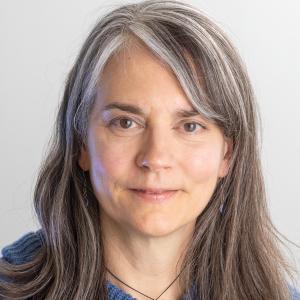 LISA PORTER
LISA PORTER
Tenure Track Assistant Professor, Occupational Therapy
503-838-8966 | porterl@wou.edu | VICK BUILDING(VICK) 208 D
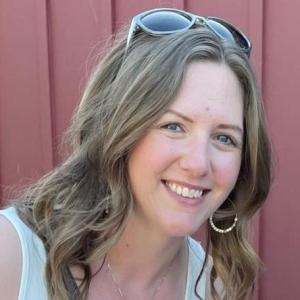 BRIANNE SALVATI
BRIANNE SALVATI
TT Assistant Professor, Occupational Therapy
| salvatib@wou.edu |
Student Resources
Student Resources:
News
Western Oregon Enhances Anatomy Education with Cutting-Edge Cadaver Technology
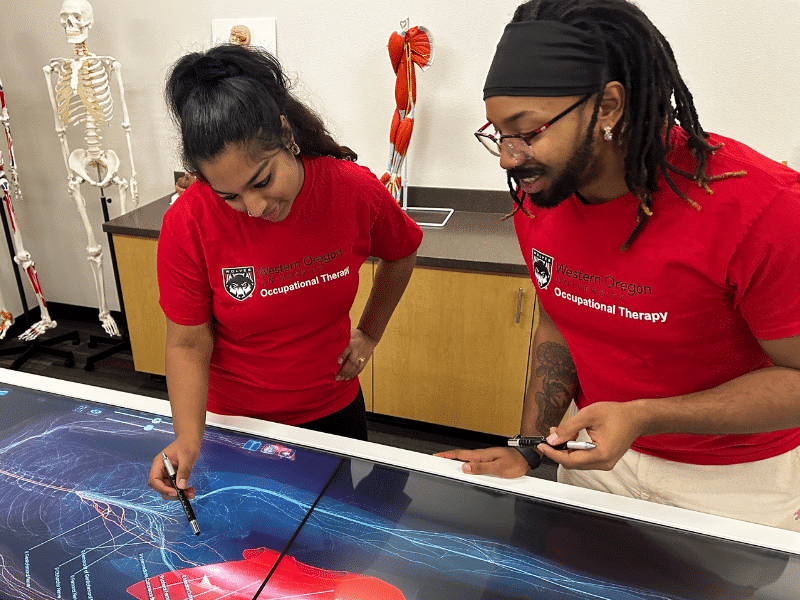
Halley Read and Ronnie Taylor visit local Koin TV on May 8, 2024
Halley Read: Building pathways for Western’s future Occupational Therapists
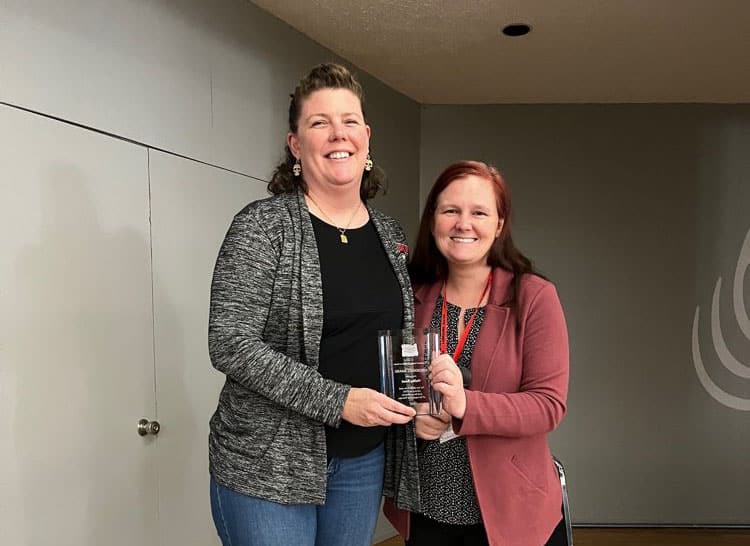
Pictured starting from left: Halley Read, Ph.D., OTR/L, Katie O’Day President, OTAO
MONMOUTH, Ore. – Western Oregon University’s Halley Read Ph.D., OTR/L, doctoral capstone coordinator for the Occupational Therapy Doctorate program, was recently the recipient of the Occupational Therapy Association of Oregon (OTAO) President’s Award.
This award is presented to individuals who have made significant contributions to the occupational therapy profession through their formal roles within the association or through other efforts. Read’s recognition stems from her exceptional advocacy and legislative policy support work, as well as her direct collaboration with and mentorship of OTAO’s current president.
Read also served as an ambassador for the American Occupational Therapy Association (AOTA), playing a pivotal role in promoting OT in Certified Community Behavioral Health Centers. Additionally, she served as the Oregon Representative for AOTA’s Representative Assembly, effectively addressing the concerns and interests of OT professionals at both the state and federal levels. These combined efforts have been instrumental in advocating for OT professionals.
“It’s important for people to know that the OTD program isn’t just a new program to Western. It’s a team filled with remarkable people who are ready to support future OTD students and their profession,” says Read. “We value using our OT clinical training to create better access and pathways for our students and not limiting it to just clinical experience, but also the role of OT professionals in legislative change to shape the future of the profession.”
Posted by Brittany Kima, January 11, 2024
Designed for:
The Occupational Therapy Doctorate (OTD) program at WOU is the first public doctoral-level occupational therapy (OT) program in Oregon and is designed to prepare students to balance the art and science of OT practice as entry-level therapists. Occupational therapists work with individuals, groups, and organizations to promote health and wellness across the age span so that everyone can strive to live life to the fullest. Occupational therapy practitioners use occupations (meaningful activities) to support individuals in doing the things they want to do, need to do, and are expected to do in daily life.
Begin your Occupational Therapy Doctorate (OTD) program:
- Fall 2025
Finishing will take:
- 147 quarter credits
- Students must complete 24 weeks of Level II fieldwork as well as an individual 14-week capstone experience within 24 months following the completion of the didactic portion of the program. The doctoral capstone experience must be started after completion of all coursework and Level II fieldwork as well as completion of preparatory activities defined in 2023 ACOTE OTD Standard D.1.3.
- Doctoral Capstone Experience and Project
Where you will take classes:
- Most classes will take place in-person at WOU:Salem building
- Some classes will utilize a hybrid format
- 3rd year didactic courses will be hybrid
- Final doctoral capstone presentations will be in person the week leading up to graduation
Technology you will need:
- Reliable computer with high-speed internet connection
- Microsoft Office software (student version is sufficient)
- Video conferencing capability (e.g. Zoom)
- The Occupational Therapy Doctorate program includes a limited number of hybrid courses. Students must be proficient in the use of web-conferencing software (e.g. Zoom), Microsoft Office, GoogleApps, and online course management programs (e.g. Canvas).
What you will learn:
Students will learn the skills necessary to become outstanding entry-level occupational therapy practitioners across the diverse settings and contexts where occupational therapists work. Students will become skilled in analyzing and applying scientific evidence through artful interventions to support participation and occupational performance for all.
Learning outcomes:
Students will:
- Demonstrate the knowledge and skills to be excellent, generalist, entry-level occupational therapists
- Understand the importance of promoting health throughout the lifespan using meaningful occupations
- Apply skilled application of occupational therapy theories to evaluate clients and develop appropriate interventions using occupations to improve functional performance and quality of life for those served
- Create a life-long learning plan
- Provide services through a lens of cultural humility that promotes equitable care while accepting diverse perspectives and promoting inclusion for all
- Demonstrate an awareness of emerging areas of practice and the significance of community-based services
- Be prepared to become leaders and agents of change, empowering therapists and clients alike
- Collaborate with clients, professionals, and others through clear, effective, and empathetic communication
Deadlines and key dates:
- You may apply to start the program fall 2025
- Applications Opens: July 19, 2024
- Application Closes: June 6, 2025
- Priority Review Deadline: October 31, 2024
- Notifications of Acceptance: Beginning December 13, 2024
Admissions will be offered on a rolling basis until all slots are filled.
Detailed application requirements
Application materials required for WOU Graduate admission:
- Application and supporting materials will be submitted via the Occupational Therapy Centralized Application Services (OTCAS) system.
Process: You will be notified via email regarding the acceptance status of your complete application. FAQs
To start, you need:
- Evidence of completion of a four-year baccalaureate degree (or international equivalent) from a regionally accredited institution as defined by the American Association of Collegiate Registrars, with a cumulative B average (equivalent 3.00 on a U.S. 4.00 grading scale) on the most recent baccalaureate degree. If the applicant’s cumulative GPA is below 3.00, but a calculation using the last 90 quarter credits (60-semester credits) of graded course work is 3.0 or higher, the latter will be used as the basis for admission. If an applicant does not have a cumulative or last 90 quarter credit GPA higher than a 3.0, applicants may petition to use their prerequisite GPA to meet admission criteria. For more information on the prerequisite GPA petition please email Kristin Nxumalo: nxumalok@wou.edu.
- Transcripts and/or academic records submitted through OTCAS from all institutions attended.
- 3 Letters of Recommendation
- OTCAS Personal Statement Prompt: Discuss how your academic background and life experiences will contribute to success in the OT program while enhancing our program and the profession of occupational therapy.
- Western Oregon University short-essay statement: Please consider the following Western Oregon University OTD curricular threads, and in a brief statement, describe which one resonates with you most and why:
- Power of occupation
- Art and science of occupational therapy
- Community health and social change
- Critical and innovative thinking for practice and scholarship
- Steward leadership and occupational justice
- Prerequisite Courses:
- Successful Completion of the following prerequisites with a cumulative GPA of 3.00 within the past 10 years (P/NP grading during the global pandemic [Spring 2020 – Summer 2021] may be considered if a grade of “P” was earned) Prerequisite courses may be in progress at the time of application, so long as they are completed by the program start in September :
- Human Anatomy & Physiology with labs (9 semester or 12 quarter hours) [Courses at WOU that satisfy the requirements: BI234, BI235, BI236]]
- Human Development (3 semester, 4 quarter units)[Courses at WOU that satisfy the requirements: PSY311]
- Social Sciences/Humanities (12 semester or 16 quarter hours) Courses can be in any of the following subject areas but at least one course must be in Psychology.
- Psychology
- Gerontology
- Exercise Science
- Public Health
- Criminal Justice
- Religious Studies
- Ethnic Studies
- Gender Studies
- Human Sexuality
- Literature
- Anthropology
- Sociology
- Social Work
- Philosophy
- History
- Language(s)
- Culture
- Art(s)
- Successful Completion of the following prerequisites with a cumulative GPA of 3.00 within the past 10 years (P/NP grading during the global pandemic [Spring 2020 – Summer 2021] may be considered if a grade of “P” was earned) Prerequisite courses may be in progress at the time of application, so long as they are completed by the program start in September :
International Applicants
At this time the WOU OTD program is unable to accept international applications. We are working on obtaining SEVIS approval, but at this time are being told it will be at least Fall 2027 before we are ablet o admit international students. We will update our website and application once we are able. If you have any questions about this, please email Kristin Nxumalo: nxumalok@wou.edu.
OT Mission:
To produce socially conscious and evidence-informed OT practitioners that utilize the power of occupation to promote the health and well-being of people and their communities in our region and the larger world.
OT Vision:
We envision a world where everyone has access to and the ability to participate in meaningful occupations that support health and well-being.
WOU OTD will achieve this vision by:
- Diversifying the profession of OT to increase access to occupational opportunities for historically underserved and minoritized persons in our communities locally, nationally, and globally.
- Cultivating student success by supporting the inclusion of, and respect for all learners, faculty, and staff while embracing the diversity of experience and thought present throughout our world.
- Producing resilient and innovative leaders who integrate the art and science of occupational therapy.
Curriculum Overview [Curriculum Grid]
The Occupational Therapy Doctorate (OTD) program prepares graduates to work with individuals, groups, and populations who are affected by physical, cognitive, psychosocial, mental, developmental, and/or learning challenges, as well as adverse environmental conditions, to maximize their occupational functioning and maintain optimum health through a planned mix of acquired skills, performance motivation, environmental adaptations, assistive technologies, and physical agents. Occupational Therapy education includes instruction in the basic medical sciences, psychology, sociology, client assessment and evaluation, standardized and non-standardized tests and measurements, assistive and rehabilitative technologies, ergonomics, environmental health, special education, vocational counseling, health education and promotion, health advocacy, and professional standards and ethics.
The OTD program is a three-year professional doctorate degree that will prepare students for careers as occupational therapists and faculty in Occupational Therapy programs. The program is built upon a foundation of human occupation, lifespan development, mental health, anatomy and physiology, kinesiology, and neuroscience that supports evaluation and assessment, applied research, intervention and rehabilitation, clinical practice, and advocacy. The program will meet all national accreditation requirements as prescribed by the Accreditation Council for Occupational Therapy Education (ACOTE). The sixty-one learning outcomes required of all ACOTE accredited programs will be delivered over 11 terms, including 24 weeks of Level II Clinical Fieldwork and a 14-week Doctoral Capstone Experience.
Curriculum Threads and Program Outcomes
- The power of occupation
- Work with individuals across the lifespan and in various contexts to harness the transformative nature of engaging in occupations (meaningful activities) that promote health, well-being, and participation in purposeful life roles.
- Weaving the art and science of occupational therapy
- Utilize the unique blend of theoretical knowledge, clinical skills, creativity, and human connection to help people achieve meaningful and purposeful lives.
- Community health and social change.
- Understand what creates healthy communities, how environments and contexts shape health and well-being, and how to act as social change agents alongside the communities we serve.
- Critical and innovative thinking for practice and scholarship
- Think outside the box to engage in thoughtful analysis, problem-solving, and creative solutions within the context of occupational therapy practice. Continuously reflect on practice and the unique needs of individuals, groups, and populations.
- Steward leadership and occupational justice
- Adopt roles that extend beyond traditional clinical practice to become advocates, facilitators, and supporters of positive change within the profession and society at large. Work to advance the field, promote ethical practice, and ensure that the principles of occupational justice are upheld.
 SEAN ROUSH
SEAN ROUSH
Director of Occupational Therapy
503-751-4054 | roushs@wou.edu | VICK BUILDING(VICK) 205B
 HALLEY READ
HALLEY READ
TT Assistant Professor & Capstone Coordinator, Occupational Therapy
| readh@wou.edu | VICK BUILDING(VICK) 205A
 STACEY VIEYRA-BRAENDLE
STACEY VIEYRA-BRAENDLE
Assistant Professor & Fieldwork Coordinator, Occupational Therapy
503-751-4080 | vieyrabraendles@wou.edu | VICK BUILDING(VICK) 205C
 AMY STEWART
AMY STEWART
Administrative Program Assistant
503-751-4121 | stewarta@wou.edu | VICK BUILDING(VICK) 206
 RONNIE TAYLOR
RONNIE TAYLOR
Assistant Professor
| taylorrg@wou.edu |
 KRISTIN NXUMALO
KRISTIN NXUMALO
Assistant Professor
| nxumalok@wou.edu |
 SHRUTI GADKARI
SHRUTI GADKARI
TT Assistant Professor, Occupational Therapy
503-838-8905 | gadkaris@wou.edu |
 LISA PORTER
LISA PORTER
Tenure Track Assistant Professor, Occupational Therapy
503-838-8966 | porterl@wou.edu | VICK BUILDING(VICK) 208 D
 BRIANNE SALVATI
BRIANNE SALVATI
TT Assistant Professor, Occupational Therapy
| salvatib@wou.edu |
Student Resources:
Halley Read and Ronnie Taylor visit Koin TV: May 8, 2024

Halley Read: Building pathways for Western’s future Occupational Therapists

Pictured starting from left: Halley Read, Ph.D., OTR/L, Katie O’Day President, OTAO
MONMOUTH, Ore. – Western Oregon University’s Halley Read Ph.D., OTR/L, doctoral capstone coordinator for the Occupational Therapy Doctorate program, was recently the recipient of the Occupational Therapy Association of Oregon (OTAO) President’s Award.
This award is presented to individuals who have made significant contributions to the occupational therapy profession through their formal roles within the association or through other efforts. Read’s recognition stems from her exceptional advocacy and legislative policy support work, as well as her direct collaboration with and mentorship of OTAO’s current president.
Read also served as an ambassador for the American Occupational Therapy Association (AOTA), playing a pivotal role in promoting OT in Certified Community Behavioral Health Centers. Additionally, she served as the Oregon Representative for AOTA’s Representative Assembly, effectively addressing the concerns and interests of OT professionals at both the state and federal levels. These combined efforts have been instrumental in advocating for OT professionals.
“It’s important for people to know that the OTD program isn’t just a new program to Western. It’s a team filled with remarkable people who are ready to support future OTD students and their profession,” says Read. “We value using our OT clinical training to create better access and pathways for our students and not limiting it to just clinical experience, but also the role of OT professionals in legislative change to shape the future of the profession.”
Posted by Brittany Kima, January 11, 2024
Contact Us:
Email: otd@mail.wou.edu
Phone: 503-751-4054
Postal: OTD Program, Western Oregon University
345 N. Monmouth Avenue Monmouth, OR 97361
Why choose WOU?
- Courses taken at our new WOU:Salem Building
- Affordability
- Western Oregon University has the longest history of educating professionals in the state of Oregon.

